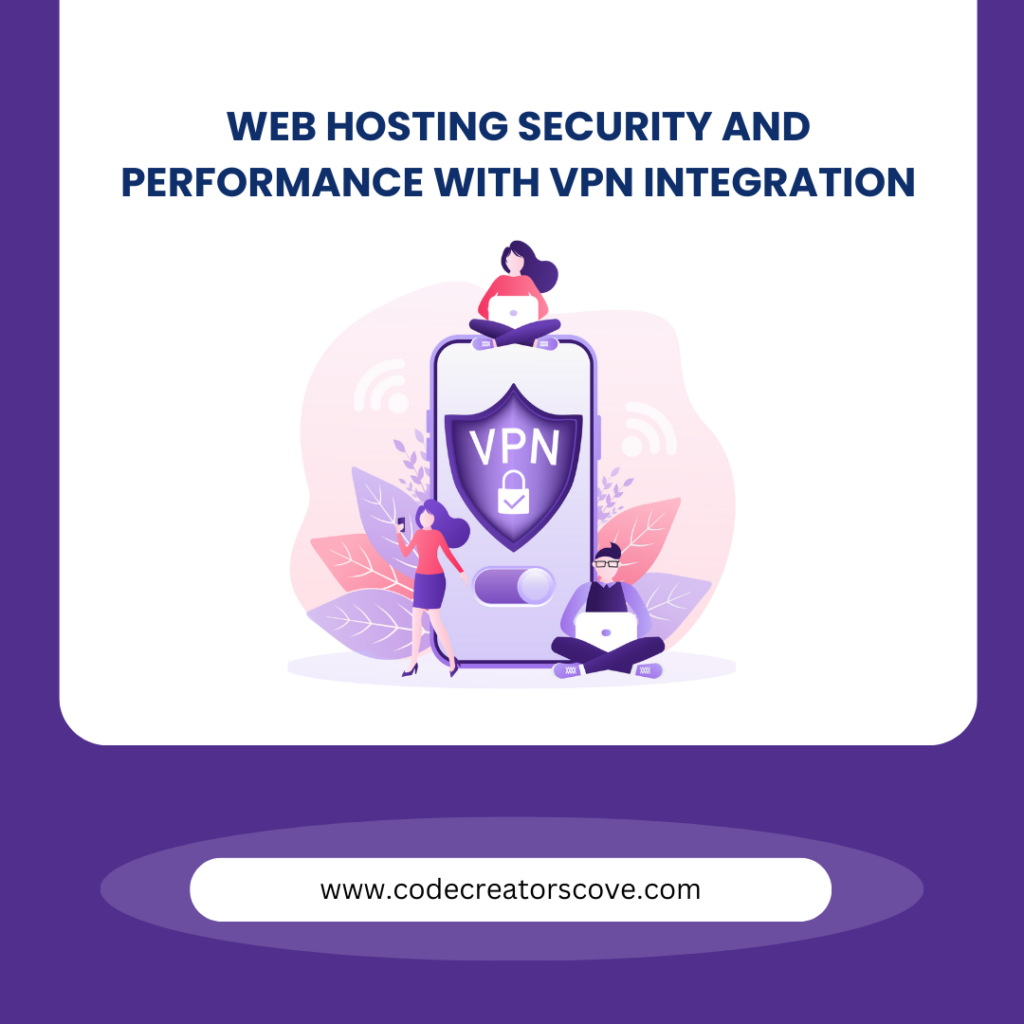In the rapidly evolving digital landscape, the intersection of web hosting and cybersecurity has never been more critical. Virtual Private Networks (VPNs) are emerging as a vital component in ensuring the security, privacy, and efficiency of web hosting. This article explores how integrating a VPN can enhance your web hosting experience, providing detailed explanations and actionable insights.
Understanding VPNs: A Primer
Understanding the basics of VPNs is crucial before diving into their applications in web hosting.
What is a VPN?
A Virtual Private Network (VPN) establishes a secure, encrypted connection over the internet. This technology allows users to transmit data securely, making it appear as though they are connected to a private network. VPNs commonly protect sensitive information, maintain privacy, and access restricted content.
How Does a VPN Work?
A VPN works by creating a secure tunnel between your device and a VPN server. All data transmitted through this tunnel is encrypted, making it unreadable to anyone who intercepts it. This process involves:
1. Encryption: Data is encrypted at the sender’s end.
2. Tunneling: The encrypted data travels through a secure tunnel.
3. Decryption: Data is decrypted at the receiver’s end.
The Synergy Between VPNs and Web Hosting
Exploring the combined benefits of VPNs and web hosting highlights why this integration is valuable.
1. Enhanced Security
One of the primary benefits of using a VPN with web hosting is the enhanced security it provides. By encrypting data, a VPN ensures that sensitive information, such as login credentials and customer data, remains protected from cyber threats like hacking and data breaches.
2. Protecting Customer Data
Imagine an e-commerce website that handles thousands of transactions daily. Each transaction involves sensitive information such as credit card details and personal addresses. Without a VPN, cybercriminals could intercept this data during transmission. However, with a VPN, all data is encrypted, making it virtually impossible for unauthorized parties to access it.
3. Improved Remote Access
A VPN facilitates secure remote access, allowing you to manage your website from anywhere in the world. This is particularly beneficial for teams working in different locations.
4. Managing a Global Team
Consider a web development company with team members in different countries. Secure remote access via a VPN ensures that developers can collaborate on projects, access the server, and update the website without compromising security.
5. Bypassing Geo-Restrictions
A VPN can help you bypass geo-restrictions by masking your IP address and making it appear as though you are accessing the internet from a different location.
6. Accessing Geo-Blocked Content
Suppose your web hosting provider has server locations restricted to specific regions. By using a VPN, you can access these servers regardless of your actual location, ensuring uninterrupted website management.
7. Enhanced Privacy
Using a VPN masks your IP address, providing an additional layer of privacy. This prevents third parties from tracking your online activities and helps protect your identity.
8. Anonymous Browsing
When managing a website, you may need to perform tasks that require discretion, such as competitive research. A VPN ensures that your IP address is hidden, making your online activities untraceable.
Setting Up a VPN for Web Hosting
Setting up a VPN involves a few crucial steps to ensure a secure and efficient connection.
Step 1: Choose the Right VPN Provider
Selecting a reliable VPN provider is the first step. Look for providers that offer strong encryption, fast connection speeds, and excellent customer support. Some popular choices include:
– NordVPN: Known for its strong security features and extensive server network.
– ExpressVPN: Offers high-speed connections and robust privacy protections.
– CyberGhost: Provides user-friendly interfaces and reliable performance.
Comparison of Top VPN Providers
When selecting a VPN provider for web hosting, it’s important to consider key features, benefits, and potential drawbacks of popular options like NordVPN, ExpressVPN, and CyberGhost. Each of these VPN providers has its unique strengths, making them suitable for different needs and preferences in enhancing web hosting security and performance.
NordVPN is renowned for its robust security features, including military-grade encryption and a no-logs policy, which means it doesn’t track or store your online activities. It also offers a feature called Double VPN, which routes your data through two separate servers for an extra layer of encryption. While NordVPN provides a large server network and high security, it can be slightly more expensive than other options.
ExpressVPN is celebrated for its high-speed connections and strong privacy protections. It uses 256-bit encryption to secure your data and also adheres to a strict no-logs policy. ExpressVPN’s extensive server network ensures fast and reliable connections, making it an excellent choice for performance-focused users. However, its premium features come at a higher cost.
CyberGhost stands out for its user-friendly interface and reliable performance. It provides strong encryption and a no-logs policy, ensuring your data remains secure and private. CyberGhost is particularly accessible for beginners due to its easy-to-navigate software. While it offers good performance, it may lack some advanced features available with other providers.
Step 2: Configure Your VPN
Once you have chosen a VPN provider, follow these steps to configure it:
– Install the VPN Software: Download and install the VPN client on your device.
– Select Server Location: Choose a server location that offers optimal performance for your needs.
– Configure Settings: Adjust encryption levels and other settings as needed.
Step-by-Step Configuration Guide
– Download and Install: Visit the VPN provider’s website and download the appropriate client for your operating system.
– Open the Client: Launch the VPN client and log in with your credentials.
– Server Selection: Browse the server list and select a location that suits your requirements.
– Advanced Settings: Access the settings menu to adjust encryption levels, enable kill switch, and configure other security features.
– Connect: Click the connect button to establish a secure connection.
Step 3: Connect to Your Web Hosting Server
After configuring your VPN, connect to your web hosting server by entering the server’s IP address and your login credentials in the VPN client. This secure connection will allow you to manage your website safely.
Secure Server Management
Imagine you need to update your website while traveling. By connecting to your web hosting server through a VPN, you ensure that all your actions are encrypted and secure, even on public Wi-Fi networks.
Step 4: Test Your Connection
Ensure that your VPN connection is stable and secure by performing routine tasks on your website. Check for any issues, such as latency or connection drops, that could affect performance.
Testing Checklist
– Website Access: Verify that you can access your website without issues.
– Speed Test: Run a speed test to check for any significant drops in performance.
– Security Test: Use online tools to check for IP and DNS leaks.
– Routine Tasks: Perform typical administrative tasks to ensure stability.
Optimal Strategies for Integrating VPN with Web Hosting
Implementing best practices ensures you get the most out of your VPN while maintaining security.
1. Regular Software Updates
Keep your VPN software up to date to protect against new vulnerabilities and ensure optimal performance. Regular updates include security patches and feature enhancements.
2. Staying Ahead of Threats
Cyber threats constantly evolve. Regular updates ensure that your VPN is equipped with the latest security measures to counteract new threats.
3. Strong Authentication
Implement multi-factor authentication (MFA) to add an extra layer of security to your VPN connection. MFA requires users to provide two or more verification factors, making unauthorized access more difficult.
4. Preventing Unauthorized Access
Even if a cybercriminal manages to obtain your VPN login credentials, MFA ensures that they cannot access your server without the second authentication factor.
5. Connection Monitoring
Regularly monitor your VPN connection for unusual activity or performance issues. This can help you identify potential security threats and address them promptly.
6. Monitoring Tools
- VPN Client Logs: Review connection logs provided by your VPN client.
- Network Monitoring Software: Use tools like Nagios or Zabbix to monitor network performance and detect anomalies.
- Security Alerts: Set up alerts for unusual login attempts or data transfers.
7. Team Education
Educate your team about the importance of using a VPN and how to use it effectively. Provide training and resources to ensure everyone follows best practices for security and performance.
8. Training Program Outline
- Introduction to VPNs: Explain what VPNs are and their importance in web hosting.
- Configuration and Use: Demonstrate how to set up and use the VPN client.
- Security Best Practices: Teach best practices for maintaining secure connections.
- Troubleshooting: Provide solutions for common VPN issues.
Conclusion
Integrating a VPN with your web hosting setup can significantly enhance security, privacy, and accessibility. By following the steps and best practices outlined in this article, you can create a safer and more efficient web hosting environment. As cyber threats continue to evolve, leveraging VPN technology will be essential in maintaining the integrity and performance of your websites.


